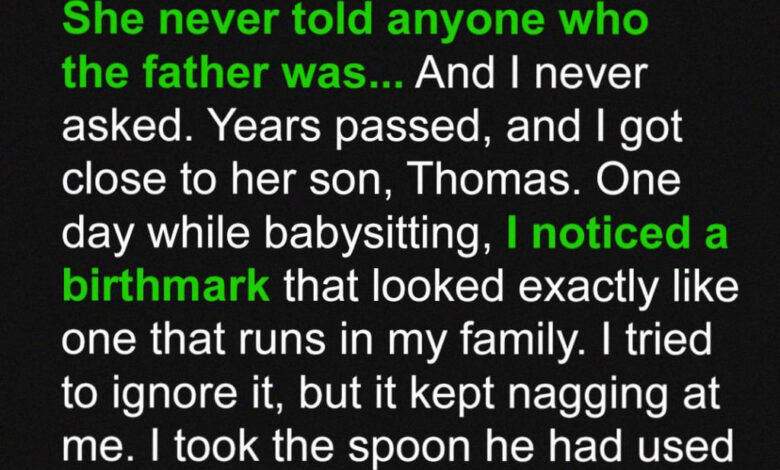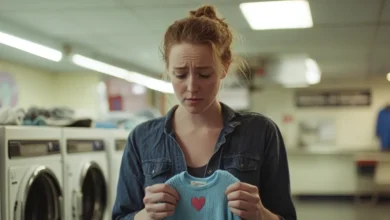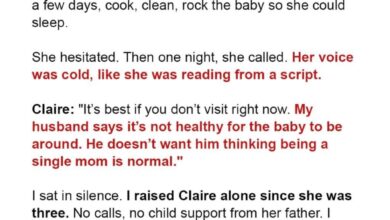The Night Everything Clicked

Kelly asked me to watch her eight-year-old, Thomas, so she could go to an overnight work retreat. I said yes without thinking. My husband, Ryan, grumbled—about babysitting, about “doing it for free,” about me not having practice with kids. Odd, considering we’d been talking about starting a family. I brushed it off as moodiness.
Thomas and I had a great evening: board games, ice cream, a movie he didn’t finish. When I carried him to bed, his T-shirt rode up—and I froze. A birthmark. Same shape, same spot as Ryan’s. I told myself it was coincidence. Then I saw it: Ryan’s nose, Ryan’s jaw, echoing on a sleeping child who wasn’t mine.
I went downstairs, bagged Thomas’s ice-cream spoon, and the next morning collected a few strands of Ryan’s hair from the bathroom floor. At the clinic, my hands shook as I paid for a paternity test. One week of pretending I wasn’t unraveling. One week of dodging Ryan’s questions.
The email arrived late at night: Probability of paternity 99.9%.
I texted Kelly to come over. When she arrived, I sat her and Ryan on the couch, opened my laptop, and let the number speak. Ryan shot up, sputtering. Kelly went quiet, eyes wet.
“How long have you both known?” I asked.
Kelly admitted she and Ryan were together in high school. She left the state at sixteen when she got pregnant, came back years later, and we became friends by chance. Ryan said he realized Thomas was his after he met them both with me—but told no one. They decided keeping quiet “was best for everyone.”
“No,” I said. “It was easiest for you.”
There was a different question under my anger: What now—for Thomas? He has a mother who’s done a beautiful job, and a biological father who’s been absent, not by mistake but by choice. I didn’t want to blow up a child’s life to soothe adult guilt, and I refused to let cowardice keep stealing from him.
“Thomas deserves the truth,” I said. “Not a scene. A plan.”
We agreed on this:
-
Kelly leads. It’s her call on pace and timing.
-
A gradual reveal. Start with Ryan showing up as a trusted adult—school events, weekend soccer, short visits—then, with a child therapist’s guidance, tell Thomas the truth in simple, age-right language.
-
Boundaries for us. Ryan and I go to counseling. My staying is not a reward for lying; it’s a choice I’ll make once I see sustained honesty, accountability, and consistency.
-
No secrets, ever again. If Thomas asks a question, he gets a respectful, truthful answer.
I’m still furious. Love doesn’t cancel deceit; it just gives you a reason to build something better on the other side of it—or to leave cleanly if you can’t. For now, I’m choosing structure over chaos: therapy appointments on the calendar, clear roles, no late-night “we’ll figure it out” wishful thinking.
People imagine betrayal as explosions. Sometimes it’s quieter: a birthmark under a nightlight, a spoon in a Ziploc, an email that rearranges your whole map. I can’t undo what they hid. But I can make sure the next part of the story—Thomas’s part—happens in the open.




